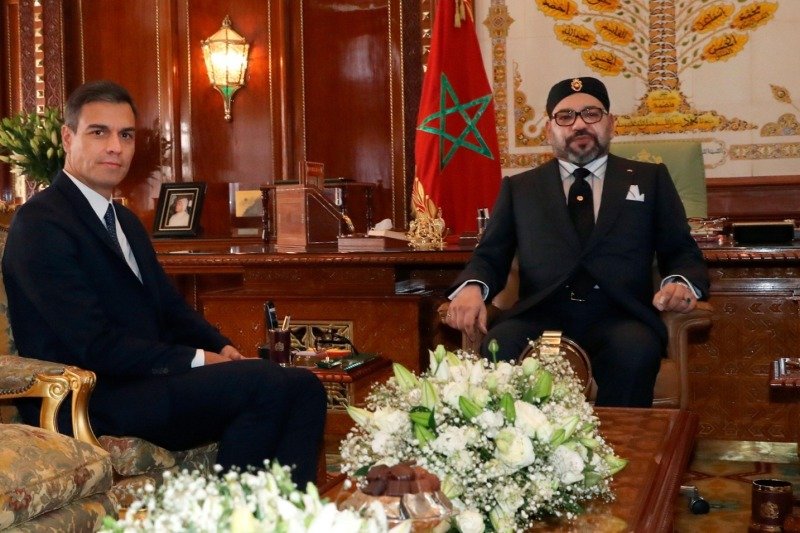
Pedro Sanchez in Morocco: Here are the issues that should be discussed

The head of the Spanish government, Pedro Sanchez, is expected this Thursday in Morocco, for a visit which should seal a reunion after a period of crisis. If the page of the Sahara seems closed after Madrid’s recognition of the relevance of the Moroccan autonomy plan as a basis for settlement, other subjects should also be on the menu of bilateral discussions.
Indeed, relations between the two Mediterranean neighbors should be reset and take a new “unprecedented” stage. According to political scientist Tajeddine Al Houssaini, the economy, the Mediterranean area, security and other bilateral issues will be at the center of discussions.
The visit of the Spanish official, invited by King Mohammed VI, comes within the framework of the reconciliation of the two countries after nearly a year of diplomatic crisis which has cast a chill over relations between the two neighbors and strategic partners.
Sanchez’s invitation to share an Iftar of the month of Ramadan is significant, it is a gesture of consideration and friendship. Before him, in Spain, only King Felipe VI and his wife Letizia had been invited to the table of King Mohammed VI for an Iftar.
“The letter sent by the head of the Spanish government to the Sovereign was a turning point in relations between Spain and Morocco”explains Tajeddine Al Houssaini, expert in international relations.
The political scientist refers to the missive in which Pedro Sanchez recognizes the depth of relations between the two countries and the Moroccan autonomy proposal as the most serious, realistic and credible, capable of reaching a solution for the regional dispute over the Sahara. .
“It was, indeed, a response to the King’s speech on the occasion of the Revolution of the King and the People on August 20, 2021”affirms the academic, recalling that the King had insisted in his speech on the importance of the links between the two countries and previously underlined the importance of developing the relationship between the two.
And to note “that he would personally take charge of this issue in order to achieve the best results, considering that these relations must be based on mutual respect and permanent trust, avoiding unilateral actions that could be detrimental to the interests of both countries”.
The political scientist also recalled that the King had pointed out that several important issues would be present at the Spanish-Moroccan negotiating table.
According to him, the topics are mainly related to issues like immigration, terrorism, organized crime and trade in all its aspects, strengthening economic, social and cultural ties. It is also about encouraging investments, improving the condition of the Moroccan community in Spain and expanding the area of cooperation in the European sphere, he listed.
“The two parties, Morocco and Spain, will appropriate and address many bilateral issues as well as those facing the Mediterranean countries and relations between Africa and Europe”foresees Pr Al Houssaini as subjects of discussion between Madrid and Rabat.
“The main objective is to achieve a high level of stability and peace and to truly transform the Mediterranean into a lake of peace”he said about the common issue between the two neighboring countries.
The issue of Morocco-Spain relations is important for each of the countries, whose future, prosperity and stability are closely linked. King Mohammed VI, known for his leadership, his benevolence, his enlightened vision and his exemplary approach in resolving conflicts and creating peace, has personally followed the process of reconciliation with Spain since the crisis linked to the reception in April 2021 of the leader of the separatist militia of the polisario behind the back of Morocco.
For the expert in international relations, this approach by the King can be explained by many reasons, in particular by the fact that he “has always considered Spain as one of the central constants of the geography of the Mediterranean region, and therefore cooperation with it is of a strategic nature”.
He concludes that“As much as the relationship has always been based on dialogue and understanding, it is implemented with strength, rigor and adherence to the principles and the realization of the common interests of both parties within the framework of a policy of equality and winning -winner for the benefit of the two peoples of the region”.
.
